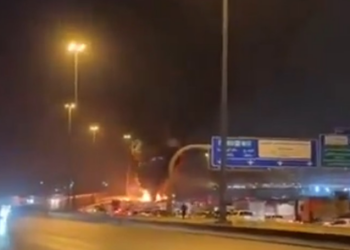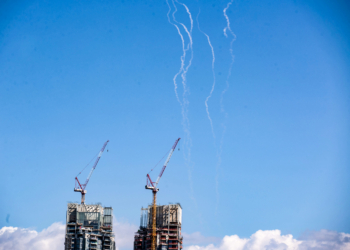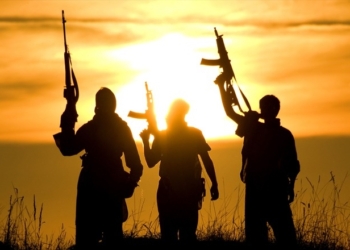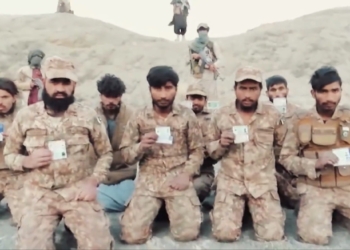Tel Aviv: Heavy fighting continued in Gaza on Saturday following a day after the temporary humanitarian truce collapsed in the besieged enclave, with the Israeli military claiming to have hit Hamas command centres.
In an update on X, the Israel Defense Forces (IDF) said on Saturday that it “struck operational command centers in Gaza, which Hamas terrorists were operating, as well as underground sites and a military compound from which anti-tank missiles were launched at soldiers” on Friday.
The IDF also said that it eliminated multiple terrorist cells throughout Gaza, including one with over 10 terrorists operating adjacent to ground troops.
It further claimed of thwarting two additional terrorist cells — in joint IDF ground and aerial activities — that launched mortar shells toward IDF troops in Gaza.
The temporary ceasefire, which was initially reached on November 24, expired at 7 a.m. on Friday morning, with Israel and Hamas blaming each other for the collapse.
According to the Hamas-controlled Health Ministry in Gaza, at least 178 people were killed and 589 injured since the resumption of the hostilities.
Meanwhile, more than 260 Palestinians were detained by Israeli forces in the West Bank during the period of the now-expired truce, according to the Palestinian Prisoner Society.
Under the Israel-Hamas truce, a total of 104 hostages — 80 Israelis, 24 foreign nationals — and 240 Palestinian prisoners were released in between November 24 to 30.
But the IDF has said that at least 136 hostages are still being held in Gaza, including 17 women and children.
The Israeli military has also said that a new interactive map showing Gaza divided up into numbered districts and “evacuation zones” is meant to reduce casualties when it carries out strikes in civilian areas.
Earlier on Friday, the IDF dropped leaflets in areas of southern Gaza which included a QR code that connects to the map.
But telecommunications and electrical infrastructure in Gaza suffered extensive damage over weeks of bombardment, leaving many residents with unreliable access to the internet and power.’
(IANS)















